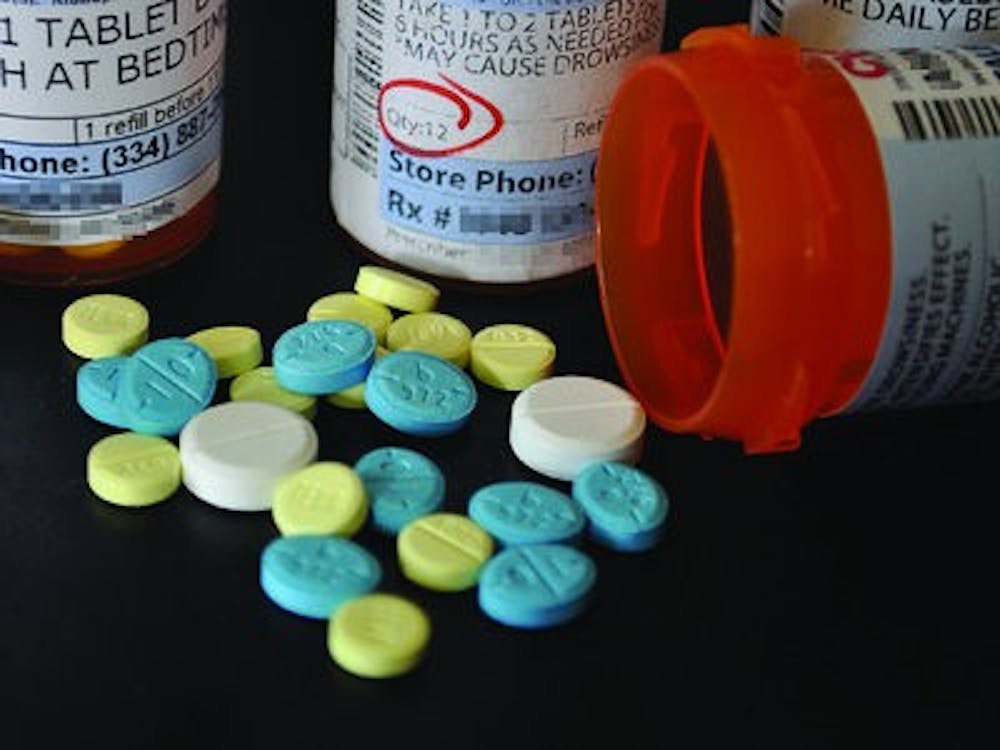As the weather gets warmer, apartment complexes open their pools, baggy sweaters are traded out for mini skirts, and the need to lose weight is looming over some student's heads. Diet pills and programs are an alternative some students are using.
"Just through like, the media and magazines and celebrities that young women, even young men, get so obsessed with like, looking perfect that they'll do anything, including going to extreme measures such as taking diet pills to have the perfect image," said Patricia Perlitz, senior in nutrition dietetics. "Even more so in the South and where we are, there's this push to look a certain way and to be tiny and be little and cute, and I think people are willing to go to so many extreme measures."
Perlitz said she has never felt the need to take diet pills, but after she heard a story of a high school girl who overdosed on diet pills and had a heart attack, she has been sure to steer clear of them. P. David Brackett, coordinator for clinical services at the Auburn University Pharmaceutical Care Center, said he suspects some students are using medications such as Adderall and Vyvanse to lose weight.
Brackett also said the most dangerous types of pills are the ones that contain amphetamines.
"They can cause tachycardia and other types of changes in heart rhythm," Brackett said. Brackett also said different types of diet pills can have different side effects.
According to Brackett, Alli, a diet pill that can be bought over the counter, decreases the body's ability to absorb fat.
"The primary side effects of that drug would be . . . gastrointestinal," Brackett said. "If you were to take that drug and then eat a high fat meal, you'd have things like diarrhea."
Brackett said Alli is probably less effective and less dangerous than Adderall, but Adderall is more effective and more dangerous for weight-loss purposes.
Kathryn Davis, senior in interior design, did a 24-day challenge using AdvoCare. According to Davis, the first ten days of the challenge are the cleanse phase, where participants take an herbal cleanse, omega plex, and energy drink mix called AdvoCare Spark.
The next phase is called the max phase. Users take a variety of pills and meal replacement shakes.
"I've never done well with pills, so my body did not like those, and I got really sick feeling off of them, and it was just too much," Davis said. "I couldn't finish the whole max phase because I just got way too sick off of them. I ended up starting taking halves of the pills, which helped a little bit."
Davis said she believes the program is a healthier option compared to other diet pills because she could still eat regular healthy meals. She said she thought it would be more successful for people who are overweight and have the ability to lose more weight.
"None of these ways that you take pills for weight loss are 100 percent safe or effective," Brackett said. "They all have their problems."
Perlitz said she thinks making small changes in one's lifestyle and not just in one's diet could be more effective than taking a pill once or twice a day.
Brackett said regardless of the diet pill, most still require the user to be cognizant of their diet and exercise habits.
"Some of these [pills] may be effective for limited term, and they may be effective in combination, [but] many of them come with side effects and potential dangers and they all still require you to change your lifestyle," Brackett said.
FACTS:
- Diet pills can increase your risk for heart attack
- Some diet pills contain amphetamines, anti-anxiety drugs and antidepressants that can be addictive (http://www.myfooddiary.com/blog/7-dangers-of-diet-pills)
- Diet pills work differently.
- Some reduce fat absorption, others decrease appetite and some reduce the amount of glucose produced by the liver.
- Diet pills, if abused, can cause chest pain, insomnia, headaches, blurred vision and tremors (http://www.addictionhope.com/diet-pills#Diet-Pill-Abuse-Statistics)
- According to eatingforlife.org, 5 percent of college women and 2 percent of college men are taking diet pills to lose weight.
Do you like this story? The Plainsman doesn't accept money from tuition or student fees, and we don't charge a subscription fee. But you can donate to support The Plainsman.




